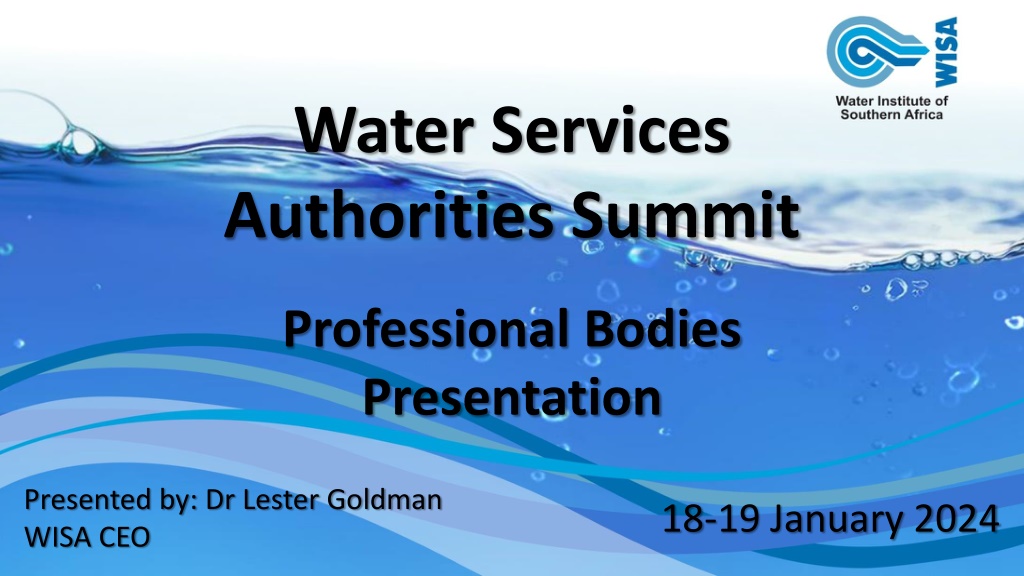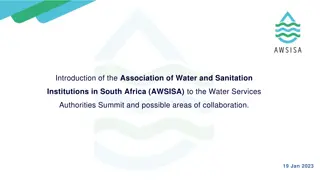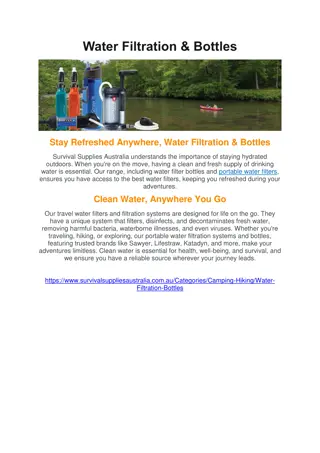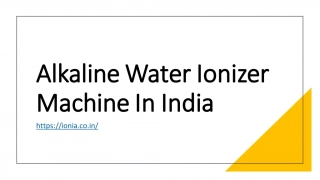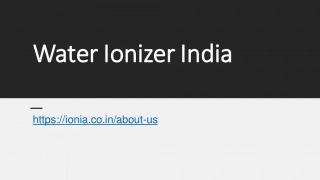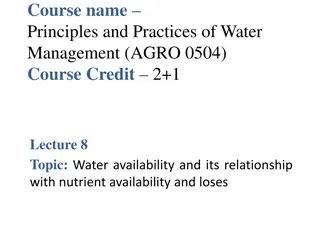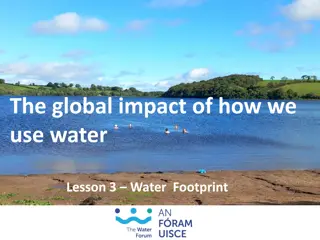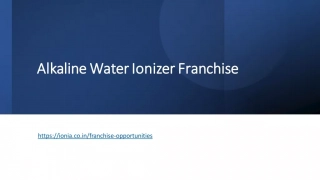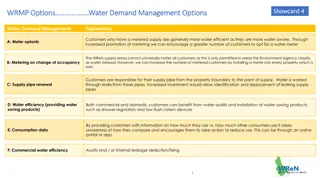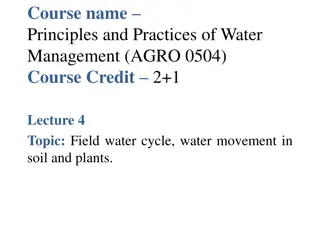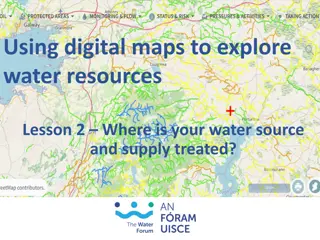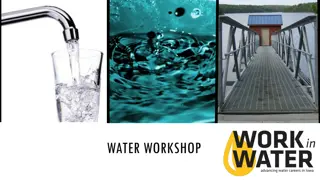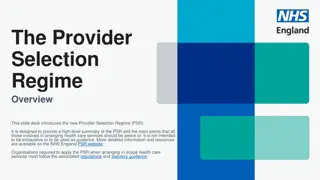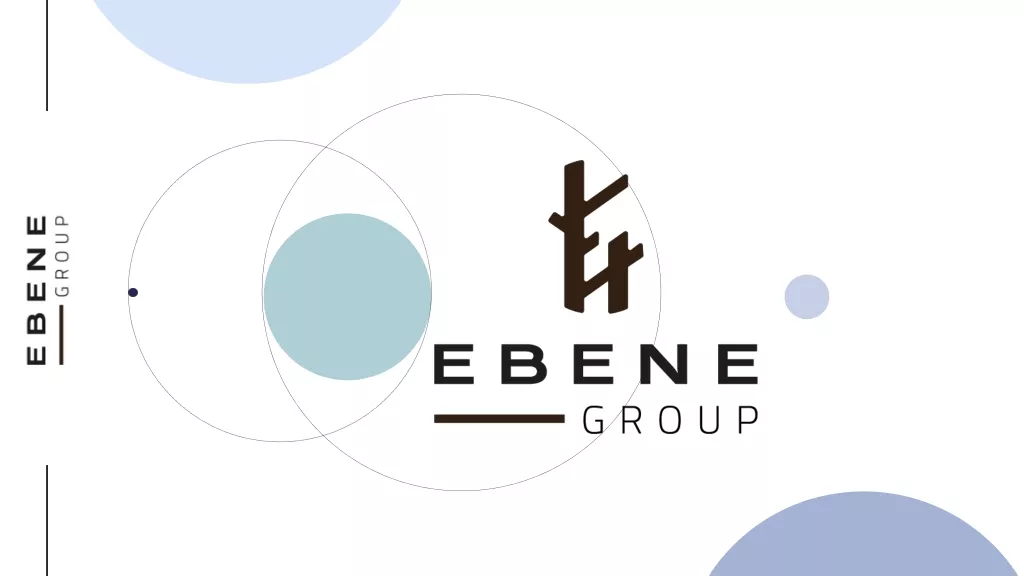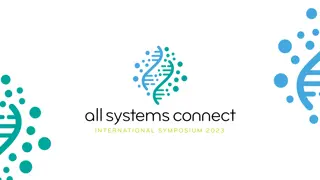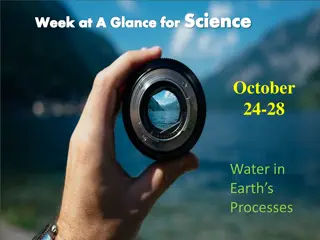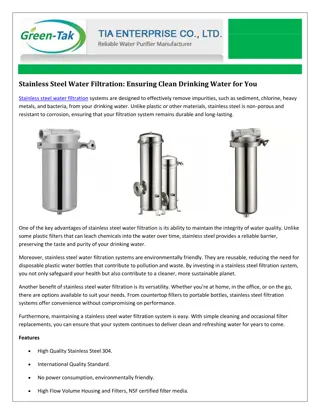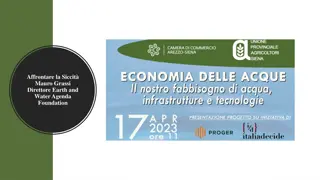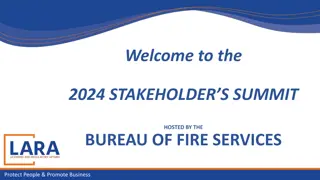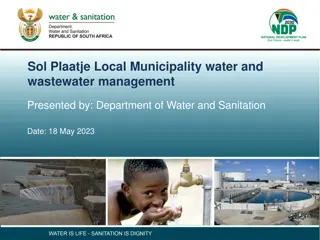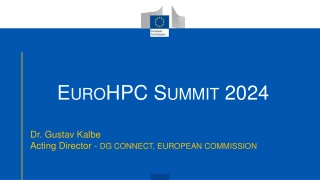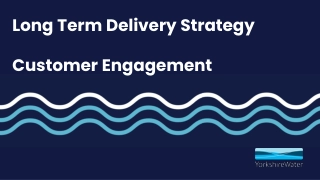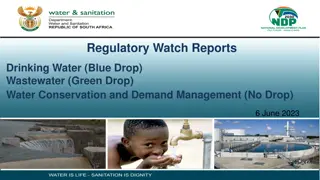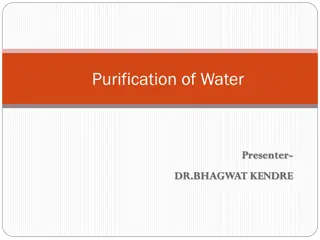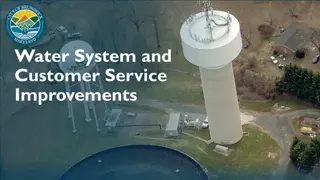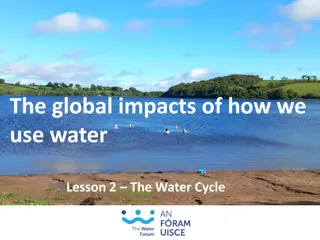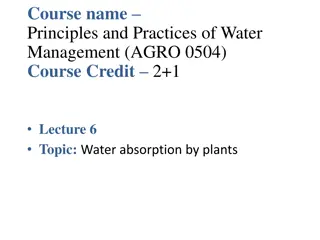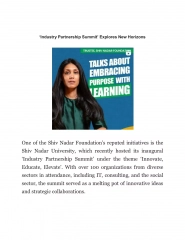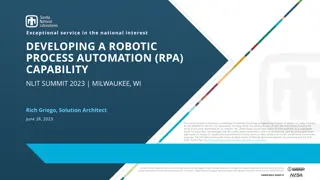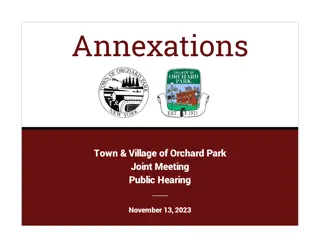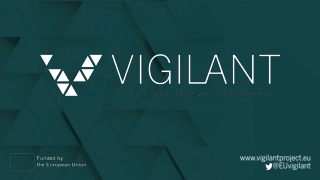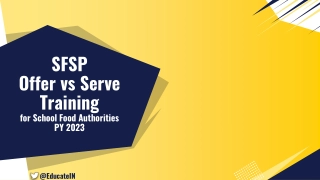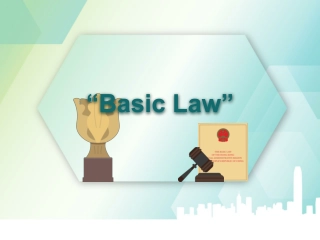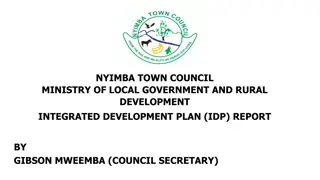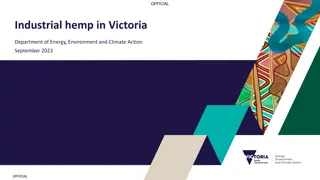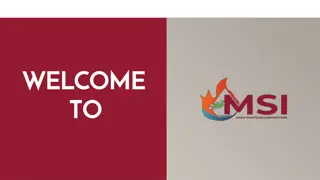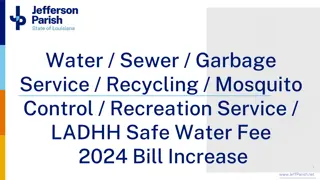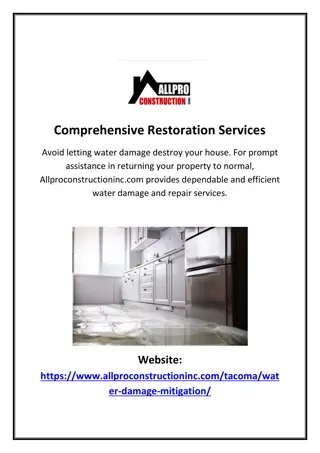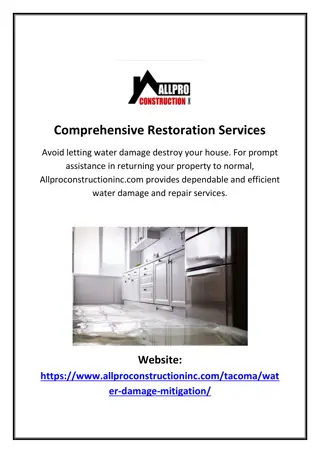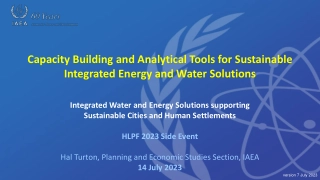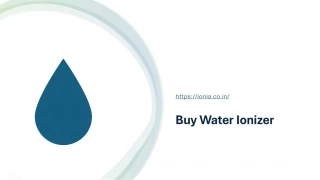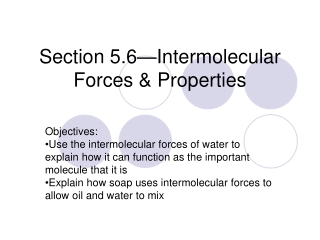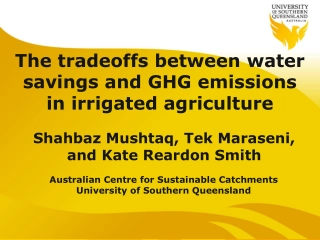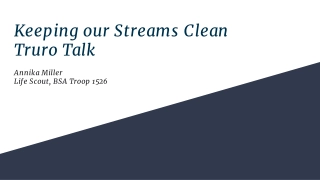Water Services Authorities Summit by Dr. Lester Goldman
Dr. Lester Goldman presents at the Water Services Authorities Summit, highlighting the importance of collaboration among professional bodies like WISA, SACNASP, IMESA, ECSA, and SAICE to regulate and support registered professionals in the water sector. The Water Institute of Southern Africa (WISA) plays a crucial role in uniting experts to address water challenges in the region, focusing on sustainable solutions and inspiring a passion for water to ensure its availability for future generations.
Water Services Authorities Summit by Dr. Lester Goldman
PowerPoint presentation about 'Water Services Authorities Summit by Dr. Lester Goldman'. This presentation describes the topic on Dr. Lester Goldman presents at the Water Services Authorities Summit, highlighting the importance of collaboration among professional bodies like WISA, SACNASP, IMESA, ECSA, and SAICE to regulate and support registered professionals in the water sector. The Water Institute of Southern Africa (WISA) plays a crucial role in uniting experts to address water challenges in the region, focusing on sustainable solutions and inspiring a passion for water to ensure its availability for future generations.. Download this presentation absolutely free.
Presentation Transcript
Water Services Authorities Summit Professional Bodies Presentation Presented by: Dr Lester Goldman WISA CEO 18-19 January 2024
Registered Professionals required by WSAs Professional Process Controller - Pr.PC Water (WISA) Professional Natural Scientist - Pr.Nat.Sci (SACNASP) Professional Engineer - Pr.Eng (ECSA) Professional Bodies that collaborate to regulate and support these designations: WISA, SACNASP, IMESA, ECSA, SAICE, amongst others.
Who is WISA? The Water Institute of Southern Africa (WISA) unites experts from various disciplines to address and solve water-related challenges in the region. WISA focuses on creating sustainable water solutions given the pressing water challenges in South Africa and neighboring countries. Collaboration is vital among governments, stakeholders, partners, and the public to manage water effectively and ensure a steady water supply for growing urban populations. WISA's mission involves considering interconnected factors and needs for successful water management. WISA, established in 1937, has a history spanning over 80 years and has evolved into a reputable professional body dedicated to advancing its mission. Our Vision WISA: Inspiring passion for water Our Mission WISA aims to inspire every person in Southern Africa to have a passion for water so that we can ensure that water is available for future generations. Slogan Think water, think WISA!
What we do? WISA members are dedicated to delivering high-quality water services through effective and efficient methods. The organization aims to build strategic partnerships within the sector and encourage active water discourse in the public sphere. Achieving water goals involves research, learning from past experiences, and ensuring the right human resources for necessary changes. Collaboration is essential for innovative solutions to create sustainable and livable cities for the future. WISA holds biennial conferences involving Southern African countries to bring together key players in the water sector. The conferences promote water management science, good corporate governance, and facilitate water-related discussions. Our Values
WISA Membership WISA Participation Structures Member Grades Voting Professional Registration Professional Process Controller Individual Member Academic Member Member Fellow Senior Fellow Retired Member Non-Individual Member Patron Member Educational Institution Municipality Company Branches Central Regions Eastern Cape Gauteng KwaZulu-Natal Technical Divisions Anaerobic Sludge Processes Innovations for Water Supply & Sanitation Membrane Technology Modelling & Data Small Wastewater Treatment Works Water Science Empowerment Platforms Young Water Professionals Non-Voting Limpopo Mpumalanga Namibia Western Cape Student Affiliate Associate Industrial Water IWA-SA Management & Institutional Mine Water Process Controllers Water Distribution Water Reuse Media Professional Member Associations Women in Water
Ways that WISA provides support Key role in improving Process Controller skills: o Lack of technical skills is a key component highlighted in Blue/Green Drop report. 47% shortfall in Process Controllers with the highest shortfall in Eastern Cape, KwaZulu Natal and Northern Cape. This is directly correlated with poor Blue Drop score. o WISA plays a critical role in ensuring professionalisation of Process Controllers as per Regulation 3630. o Professionalisation will improve retention of these professionals who now have a professional career in water/wastewater treatment leading to improved operations of treatment plants. o Accredited training presented by WISA to ensure continuous professional development. o Sponsorship initiatives to encourage professional registration of Process Controllers ongoing project. Assistance to Municipalities o Workshops on Regulation 3630 and how to comply. o Accredited, tailor-made training on Blue/Green Drop certification for senior management and councillors. o Roll out of subsidisedd training for EWSETA,WRC, etc. Assistance to Department o Blue/Green/No Drop workshop - WISA 2024 (Preferred platform for water discourse) o Pool of technical specialists for targeted interventions o Strong collaboration with key water sector partners i.e. municipalities and Water Boards in particular.
Institute of Municipal Engineering of Southern Africa About IMESA IMESA promotes the interest of municipal engineers and their profession We create a platform for the exchange of ideas and viewpoints on all aspects of municipal engineering. This is done with the aim of expanding the knowledge and best practices in all Local Government municipalities. IMESA advises Councils on engineering matters and serves the broader Community through representation on a number of National Bodies, where it provides input from the municipal engineering perspective.
IMESA responsibilities and assistance to municipalities regarding the Departmental Regulatory Drops programme The challenge facing municipalities in South Africa is that of asset management: the effective and methodical recording of all accumulated assets with a view to managing them today and maintaining them today for the future in the most cost-effective manner possible. IMESA has made available a web-based tool (knowledge management system) called Asset Management Program Learning Environment (AMPLE) that is user friendly set of on-line process and practice guidelines, templates and decision support tools that will: Simplify the development of consistent Asset Management Strategic Plans. Provide effective Implementation Guidelines for agencies to assess and drive a meaningful improvements in asset management. List Asset Management systems from around the World. This is a very useful tool to Municipal Officials, Asset Managers and Operations, and Engineering Consultants
IMESA responsibilities and assistance to municipalities regarding the Departmental Regulatory Drops programme continued IMESA in Collaboration with the Water Research Commission and the Water Sector Stakeholders represented by WISA have developed a Water Reclamation and Reuse Guideline for South African Municipal Engineers. This guideline is available on IMESA Knowledge Base. The Best Practice Guideline for Design Flood Estimation in Municipal Areas in South Africa is another projects jointly funded by IMESA and WRC. The completed document was launched at the 86th IMESA Conference in Gqeberha in October 2023. IMESA like other Voluntary Associations through its journal promotes the knowledge and practice of infrastructure development, maintenance and service delivery in Southern Africa IMESA encourages municipal engineering practitioners to attend its annual conferences, seminars, meetings and trainings because this is where the exchange of ideas and knowledge are taking place. IMESA is reaching out to various Municipalities in trying to assist with capacity building, assistance with Pr Registrations etc.
Conclusion IMESA like all other VA's is concerned about the state of municipal infrastructure. Most municipalities do not make enough budget for Asset Maintenance but priority is being given to the new infrastructure and the buried infrastructure being forgotten. The water losses for most of the municipalities including Metros exceeds 50% which is worrisome considering the limited water resource and the state of Government funding purse. IMESA on various platforms makes municipalities aware of the negative impact of not taking care of the water and sanitation infrastructure. Because of the water losses, the Water Boards and the Department would invest earlier in terms of developing Dams and other Bulk Water infrastructure to cater for the water disappearing on the ground which in turn will impact on the water tariffs, The dilapidated infrastructure is so vulnerable to the floods, this resulting on waste waster pipes bursting and sewage contaminating water resources and increasing the costs of the water treatment.
Conclusion Most of the Water Services Authorities are challenged when it comes to the capacity in relation to competent maintenance team, the scientists, and even the engineering practitioners responsible for planning and design of water and sanitation infrastructure. IMESA with its limited resource develops guidelines and do training workshops to municipalities to try and address the capacity issues. IMESA encourages where practically possible the responsibility of providing bulk water to be given to the Water Boards who seems to have the necessary capacity in terms of the skills and financial muscle. The recent Blue Drop Report is an evidence that where this arrangement is in place, the Blue Drop is achievable. The above arrangement would allow WSA s to have more focus on addressing aging infrastructure on the distribution systems and improve on water losses and quality due to leaking sewer pipes. IMESA encourages WSA s to budget for back-up energy infrastructure due to power supply challenges. IMESA continues to collaborate with other VA's such as WISA on training initiatives, development of guidelines in trying to address the water challenges.
South African Council for Natural Scientific Professions Inputs from SACNASP SACNASP is a statutory body that registers, regulates and professionalize the natural scientists in the country in order to protect the public, the environment & the profession. Understanding the challenges faced by the water sector especially in having inadequately trained personnel and with not relevant qualification SACNASP s role. Statistics from SACNASP register shows a concerning picture - less than 1000 water scientists are registered with SACNASP is this a true reflection of the cohort of water scientists in the country. Are the water scientists hired in various municipalities registered with the regulatory body, if not they are flouting the Natural Science Professions (NSP) Act 27 of 2003. SACNASP will be happy to collaborate with the municipalities to ensure that all the water scientists are registered (meaning that their qualifications are verified and endorsed) hence giving assurance that the water scientist hired are competent to execute their duties ethically and to the high standards required.
Inputs from SACNASP Likewise, the municipalities should ensure that the service providers offering various science-based services for water quality assessments and waste water treatment should ensure that they are registered with SACNASP and a SACNASP certificate becomes a requirement for awarding a contract or tender this safe guards the municipality to risks - as the registered service provider adheres to SACNASP code of conduct. Above all SACNASP has a developmental programme for mentorship and for continuous professional development to ensure that the water scientists continue to be competent, executes their work ethically/with integrity and these are fundamental qualities needed to advance server delivery process for a capable and developmental state. In principle failure to adhere to NSP Act and code of conduct by unregistered water scientist, not only exposes the national department and municipalities to unforeseen risks (litigation, compliance and reputation), but also endangers people s lives and it is a threat to the environment. Thus we encourage the department and the municipalities to ensure that it is compulsory for the scientists to register with SACNASP.
www.ecsa.co.za www.sacnasp.org.za www.imesa.co.za www.saice.co.za www.wisa.org.za
